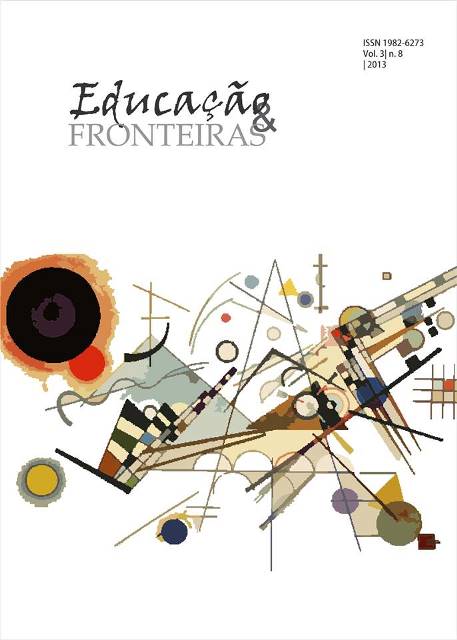Teaching research in education and use of technology: an experiment on modality in blendedlearning course in the Pedagogy
Keywords:
Teaching of research in education. Blendedlearning. Course of Pedagogy.Abstract
This article describes an experience on teaching of research in education in a course of Pedagogy. I has associated an on line learning methodology, by using a LMS platform, together with planned face to face meetings, directed towards the learning of research, bringing the theory-practice association as a principle, in the scope of a 60 hours discipline. The experience is divided into two category fields, thematic and pedagogical, that involves justified choices. In the thematic field, the debate on scientific research is presented, divided into the epistemological, technical-instrumental and normative dimensions. The empirical research perspective is chosen in the tradition of the scientific methodology unity. In the pedagogical field, the blended learning methodology is chosen with its consequences in the public university context. It reaches the conclusion on the adequacy of the experience, but indicates to some limitations of the institutional context, specially to teachers and students. It seems clear the impossibility to think of research for undergraduate students, only as a discipline, but it has to take into account the perspective of research education through the whole course.Downloads
References
BACON, F. Novum Organum ou Verdadeiras Indicações Acerca da
Interpretação da Natureza. Portal Periódicos CAPES. Domínio Público.
Créditos da digitalização: Membros do grupo de discussão Acrópolis
(Filosofia). Disponível em: http://br.egroups.com/group/acropolis/. Acesso em: 25/11/2013.
CAMPOS, M. M. Para que serve a pesquisa em educação?Cadernos de
Pesquisa, v. 39, n. 136, p.269-283, jan./abr. 2009.
CASTELLS, M. A sociedade em rede.v. 1, 7ª Ed. SP: Paz e Terra, 2003.
FEYERABEND, P. K. Contra o método. 3ª Ed. RJ: Francisco Alves, 1985.
Higher Education Journal (Technological Horizons In Education). 38 (6),
June-July 2011.
KIPNIS, B. Educação superior a distância no Brasil: tendências e
perspectivas. In: LITTO, F. M.; FORMIGA, M. (orgs.).Educação
àdistância:o estado da arte. v. 1, SP: Pearson Prentice Hall, 2009.
KUHN, T. S. A estrutura das revoluções científicas. 4ª ed. SP: Perspectiva, 1996.
LAWINSCKY, F. M.; HAGUENAUER, C.Análise das ferramentas da
plataforma MOODLE do LATEC/UFRJ segundo a abordagem sistêmicorelacional de interação. Disponível em:
http://www.abed.org.br/congresso2011/cd/150.pdf Acesso em: 25/11/2013.
LÉVY, P. A inteligência coletiva: por uma antropologia do ciberespaço. 3ª
ed. SP: Loyola, 2000.
______Cibercultura.SP: Editora 34, 1999.
LITTO, F. M.; FORMIGA, M. (orgs.). Educação à distância:o estado da
arte. v.1. SP: Pearson Prentice Hall, 2009.
______; ______ (orgs.). Educação à distância:o estado da arte. v.2, SP:
Pearson Prentice Hall, 2012.
MOORE, M. G.; ANDERSON, W.G. (eds.).Handbook of distance
education. Mahwah, New Jersey: Lawrence Erlbaum Associates, Publishers, 2003.
OLIVER, M.; TRIGWELL, K. Can blended learning be redeemed?Elearning,
v.2, Number 1, 2005.
POPPER, K. R.A lógica da pesquisa científica. SP: Cultrix, 9ª. Ed., 1993.
SCHLICK, M. Positivismo e realismo. IN: Os pensadores. Textos
escolhidos. Schlick, Carnap e Popper.v. 44, SP: Abril Cultural, 1975.
WHITELOCK, D.; JELFS, A. Editorial: Journal of Educational Media.
Special Issue on Blended Learning.Journal of Educational Media, 28 (2-3),









